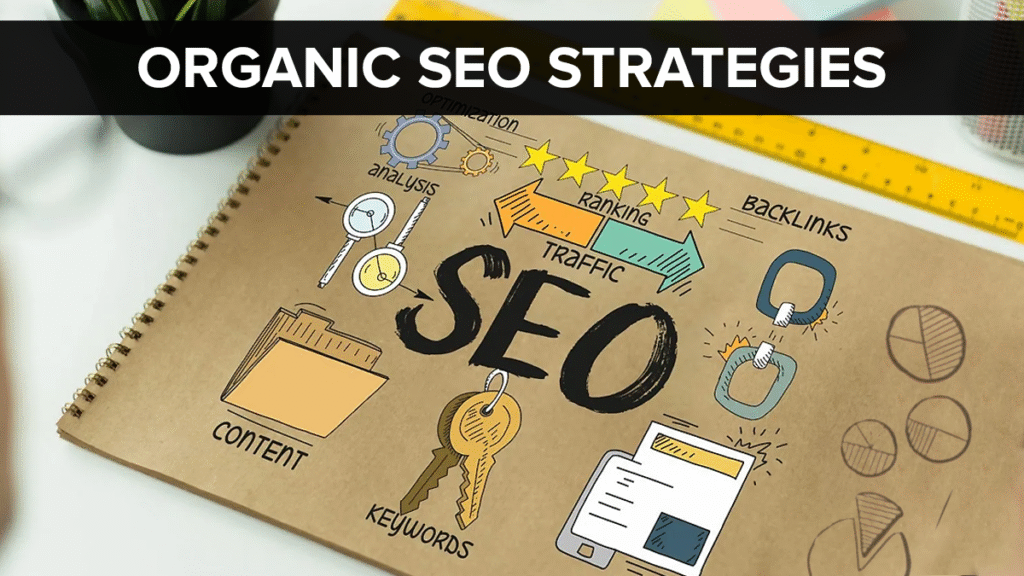Search Engine Optimization (SEO) is one of the most powerful tools for growing a business online. Done right, it can bring consistent, targeted traffic to your website—without paying for ads. The best part? Good SEO compounds over time.
In this guide, we’ll explore key strategies that actually work in today’s search engine landscape.
1. Understand How Search Engines Work
Before diving into tactics, you need to understand the basics:
- Google’s goal is to serve the most relevant, high-quality content for every search.
- It uses hundreds of ranking factors like content quality, page speed, mobile-friendliness, backlinks, and user behavior.
SEO is about optimizing for humans first—and Google second.
2. Start With Keyword Research
Use tools like:
- Google Keyword Planner
- Ubersuggest
- Ahrefs
- SEMrush
Find keywords that:
- Match your content
- Have decent search volume
- Are not overly competitive
Focus on long-tail keywords (e.g., “how to start an online bakery” instead of “business”).
3. Create High-Quality, Relevant Content
Content is king—but not just any content. You need:
- Original, helpful information
- Clear structure (headings, bullet points, short paragraphs)
- Natural keyword use
- Internal links to other relevant posts
- External links to trusted sources
Aim for depth and value.
4. Optimize On-Page SEO
Every page on your site should have:
- A compelling title tag (under 60 characters)
- A clear meta description (under 160 characters)
- Headings with keyword variations (H1, H2, H3)
- Optimized images with ALT text
- Fast load time
- Mobile responsiveness
5. Build Quality Backlinks
Backlinks = authority. Earn them by:
- Guest posting
- Creating shareable infographics
- Publishing expert roundups
- Reaching out to bloggers and journalists
- Listing your business in directories
Quality matters more than quantity.
6. Improve User Experience
Google tracks how users interact with your site. Focus on:
- Fast loading speed
- Clean, distraction-free design
- Easy navigation
- Clear CTAs
- Low bounce rates
The better the user experience, the higher your chances of ranking.
7. Update Content Regularly
SEO isn’t a one-and-done effort. Keep content fresh by:
- Adding new statistics or case studies
- Updating titles or meta tags
- Expanding posts with FAQs
- Repurposing into videos or reels
Final Thoughts: SEO Is a Long-Term Game
It takes time, but the return is powerful. SEO brings free, qualified traffic day and night—if you’re consistent and strategic.



